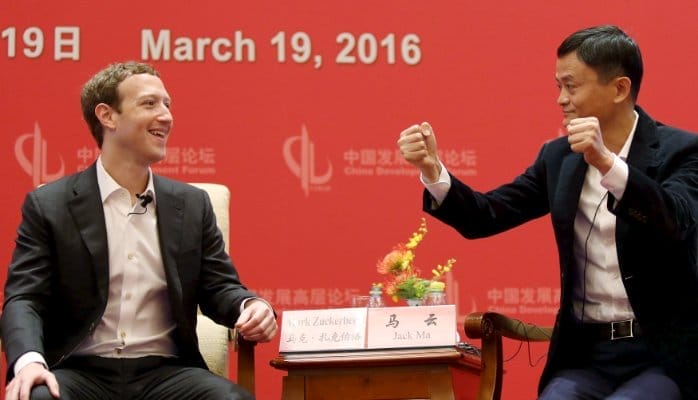I’ve represented the Wharton School at three big international events so far in 2016 — the World Government Summit in Dubai, the Wharton Global Forum in Kuala Lumpur, and now the China Development Forum in Beijing. “Innovation and Entrepreneurship” has been at the top of every agenda because countries world over are desperately seeking productivity-enhancing innovation, and because startups seem better at generating it than big established organizations. Nowhere was this more clear than in Beijing last week. Amid a star-studded program of political, business, and academic leaders from China and around the world, there were two rockstars — Alibaba founder Jack Ma and Facebook founder Mark Zuckerberg.
The Ma-Zuckerberg discussion (mostly in English after Zuckerberg began in his improving Mandarin) was a mob scene, replete with paparazzi-style photography interspersed with rushes towards the stage from the audience to take “I was there” selfies. It was a spellbinding conversation in contrasts. Consider what different people these two revolutionary business leaders are:
- Zuckerberg is a tech nerd who dropped out of Harvard; Ma studied at a nondescript teacher’s college in his native Hangzhou before becoming a schoolteacher;
- Ma is a tech luddite who doesn’t want to get under the hood of his business; Zuckerberg is a coder whose instinct is to dive into the details of his products;
- Zuckerberg has a missionary zeal about innovation, looking 5-10 years out for things that will change the world; Ma is a pragmatic innovator committed to making small improvements every day;
- Zuckerberg is obsessed with the power of STEM, AI/VR/AR, the promise of driverless cars, health sensor implants; Ma is a humanist — part philosopher, part historian — interested in the differences between machines and humans;
- Ma said Americans love competition and to stand out, while Chinese seek harmony and to fit in; Zuckerberg belied this stereotype by asking questions, listening hard, and revering Chinesehistory and culture.
In the end, however, I was struck by three profound similarities between these two titans of industry and their companies:
- Alibaba and Facebook in a mere decade have touched and improved the lives of literally billionsof people. The reach and impact of businesses can rival that of the most powerful countries.
- The success of these two companies has been made possible by the vision, drive, and smarts oftheir extraordinary founders. Leadership really matters.
- The back end that powers Alibaba and Facebook is data analytics. It not only allows them toserver their customers and users, but it’s also at the core of decision-making. Soft skills stillmatter, but they need to be supplemented by the ability to use the avalanche of data to makebetter decisions.
In a conference focused largely on China’s next five-year plan, replete with speeches by government officials reading chapter and verse from the plan, it was these data-driven entrepreneurs who stole the show because innovation and analytics hold the key to a better future for us all.
Editor’s note: The original version of this article appeared on LinkedIn on March 24, 2016.
























